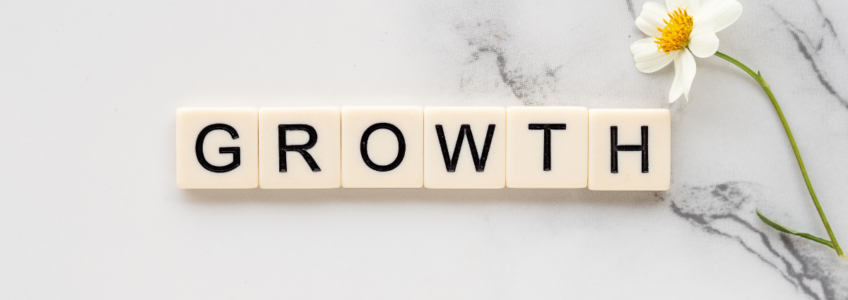
Therapy is an incredibly valuable experience that can bring tremendous benefits to your life.
How much you get out of therapy depends on many factors, from how much effort you put into it to how good of a fit your therapist is for your needs and goals. Multiple studies consistently show that one of the strongest predictors of successful treatment is the quality of a therapeutic relationship between a psychotherapist and a client. In short, finding a therapist that is the right fit for you is one of the most important things for making progress in therapy.
Now, finding the right therapist takes investment – in terms of your time, energy, and finances. Thus, it’s natural that you want to know if you’re working with the right person, so your investments pay off. To make the process a little bit easier, in this article, we are going to discuss:
- What are some red flags telling you that your therapist may not be the best choice for you?
- How does it look and feel when you and your therapist are the right fit?
- How to know if you are making progress in therapy?
Hopefully, these topics can help you save precious energy in finding the right therapist, or decide if your current therapy journey is going in the right direction.
Psychotherapy Red Flags: 5 Signs That Your Therapist Is NOT The Right Fit For You
Having a bad experience with a therapist is not so common. Research shows that 75% of people who enter therapy benefit from it significantly. Still, it is important to be informed about possible red flags of therapy. Finding them doesn’t always mean that you are working with a bad therapist (although this can be the case). Sometimes, it’s just a case of a wrong fit and someone else’s style and approach would feel better for you personally. But this feeling you have with your therapist is important and is very informative about whether to stick with them or move on.
If you’re working with a therapist and feel something is off, maybe it’s time to think about discussing it with them or, eventually, finding a new therapist. There is nothing wrong with either.
Here are some things that may be telling you that you are not getting the most out of your therapy sessions.
1. You don’t feel understood
A good therapist should, first and foremost, be a good listener. If you often feel rushed, if your feelings are minimized or dismissed, it is a red flag.
Sometimes, because of various reasons such as cultural or religious differences, the therapist’s lack of experience with certain issues, or too wide disparities in personalities and views on life, it’s possible to feel like your therapist is not able to fully understand you. It may feel like they are asking the wrong questions most of the time or focusing on the wrong thing. Perhaps you wanted to point out something important but they keep talking about something else that you don’t find relevant, and this repeatedly happens in your sessions. If that is the case, it may be time to move on and find a therapist who you feel is better attuned to your feelings and needs.
2. You feel judged, shamed, or unsafe to share your authentic thoughts and feelings
It is completely normal to be reluctant to share your deepest fears, secrets, and vulnerabilities with a stranger, especially at the beginning of your therapy journey. However, if you feel like your therapist is “looking down” on your issues or trying to lecture you on what is right or wrong, that’s a sign that you should look elsewhere. Therapy should be a place free of judgment, where you feel safe and comfortable. A strong therapeutic alliance is the most pivotal thing for successful therapy. Thus, it is important to find a therapist who you feel accepts you, empathizes with you, and with whom you can be open and honest. If your current therapist is not that person, it may be time to discuss it with them or try someone new.
3. They keep pushing you to talk about or work on something before you feel ready
Therapy is the place for you to safely explore your thoughts, emotions, memories, patterns… at your own pace. Your therapist will guide and nudge you in a certain direction, but they should respect your pace and your choices. Thus, they should respect if you express that you are uncomfortable working on some themes for now, no matter how important they think discussing them may be. If you feel like they are breaching your boundaries or trying to force you into talking about something you don’t yet feel comfortable working on, it’s a reason for concern.
4. Your personalities are too different
Your therapist is not your friend, but your personalities still need to be compatible to an extent for you to feel like you two are the right fit. Some people like their therapist to use humor, and some don’t. Some like their therapist to be informal, talkative, or quirky, others like more of a distanced or directive approach. Not all human beings fit well together, and that’s okay. An important piece of the “finding the right therapist” puzzle is to find someone who you like and feel comfortable talking to.
5. You repeatedly feel frustrated after your sessions
It is not uncommon to feel less-than-great after some therapy sessions. Therapy touches on your sensitive spots and invites you to leave your comfort zone. It’s not always a pleasant experience, but it’s a valuable one, especially in the long run. If your therapist is the right fit, you will usually leave your session feeling better about yourself than when you came in. You may feel emotionally drained or shaken up, but at the same time hopeful or with a sense that you gained some new knowledge. However, if you leave more than half of your sessions frustrated and feel like you lost your time, it is something that needs to be addressed.
A good therapist will encourage you to speak up when something is not working and discuss with you openly ways to overcome an issue. They will be highly motivated to make sure that your therapy sessions are beneficial for you. But sometimes, people just don’t “click” and that’s okay. You can take note of which qualities worked and which didn’t. That will be precious when finding your next therapist.
Psychotherapy Green Flags: 5 Signs That Your Therapist Is Right For You
Sometimes, we may not be sure what a good therapeutic relationship should look like. This is especially true if we have no previous experience or knowledge to compare it to.
What does it mean that your therapist is the right fit?
What does a good therapist do? How do they behave?
How should you feel with your therapist?
Sometimes, you can’t tell right away. It may take a couple of sessions for you to get comfortable and gain trust. However, after some time, it’s usually not too difficult to recognize if you’re with the right therapist – if you know what to look for. Below are some common therapist green flags that can help you determine whether a relationship with your therapist is a high-quality one.
Disclaimer: we treat it as a given that your therapist is appropriately trained and licensed. When starting therapy, always make sure to ask your therapist about their credentials.
1. You feel understood and validated
An experienced therapist knows how to listen efficiently. They make you feel heard and understood. They ask the right questions to get to the underlying message behind what you’re saying. Even when they don’t share the same background as you, if they make an effort to understand and be mindful of all aspects of your identity and how it colors your emotions and thoughts, that’s a great sign.
With the right therapist, you feel like they “get” you – they follow your pace and help you gain new perspective. They summarize what you have said in a way that makes sense to you. They ask for clarification. You feel like your experiences are valid because they acknowledge what you say without judgment. You feel seen and accepted like you can be true you around them.
Again, all these feelings may not come right away; sometimes, it takes a couple of sessions to adjust, gain trust, and get comfortable. Still, the goal is that your therapist provides a safe environment where you feel like you matter.
2. Your therapist is gentle but challenges you as well
In therapy, you may show your vulnerabilities, fears, insecurities, and all the sides you may not often show to the world. Through this process, your therapist should be an ally. It doesn’t mean they will agree with you all the time. They may challenge your views or ways you behave, helping you gain new insight or face what you avoid confronting. But they will always do this gently, so you don’t feel attacked or exposed. If you see your therapist as someone who guides you, holds space for you to be yourself and explore what it means, and at the same time encourages you to get out of your comfort zone and face difficult things in your life, it’s your cue that they are the right choice for you.
3. You leave most of your sessions feeling better about yourself or with new tools
Therapy can be painful, uncomfortable, and challenging, because it is where you face your deepest vulnerabilities and memories, and learn to change long-standing patterns. That can be tough! Sometimes, you may leave the session frustrated, tired, or kind of upset. Occasionally, this is normal, and it’s okay to raise this issue with your therapist. If your therapist is the right fit, they will work through these issues with you or, possibly, adjust their approach.
A great therapist is not just a good listener, but he/she provides you with tools and support to change habits, develop new skills, or gain useful insight. They will help you leave most of your sessions with a sense that you have something to work with or think about between your meetings.
4. In difficult situations, you think about what your therapist would suggest you do and find it helpful
At a certain point in therapy, when you’re facing a challenging situation, thinking about what your therapist would suggest or “hearing your therapist’s voice in your head” is natural. This is what is often called “internalization” of your therapist’s voice. The way they relate to you – with compassion, support, and acceptance – is how you slowly start relating to yourself. This is often a transitional period between your previous unhelpful self-talk and the stage where the voice that directs you toward healthy choices becomes completely yours. It’s a positive sign.
5. You notice a positive change in yourself
Therapy is a process. Positive change takes time; it will not happen overnight. Still, with the right therapist, you should notice some improvement after a while (say, after about 10-15 sessions. This, of course, varies greatly from person to person). Even if the problem you came to therapy with may not be solved yet, some positive change is a good sign that you and your therapist are heading in the right direction.
Also, it’s important to know that progress is not linear – some setbacks will occur. Sometimes, you will make different, healthier choices and use tools that you learned in therapy. It will feel great! Other times, you will slip and fall into your old patterns. This is completely normal. Through the process of learning, with support and new knowledge, you will be able to bounce back more quickly than before and relate to yourself in a different, healthier way.
So, what are some indicators telling you that therapy is working?
10 Signs That You Are Making Progress In Therapy
There is no universal set of ways to measure progress in therapy and emotional healing. It is individual and depends on your personal goals and needs. Still, as an example, here are 10 common signs you might be making progress in therapy and heading toward improved mental health.
You…
- are not as much “in your head” as before
- listen to your body’s needs more
- start setting healthy boundaries
- can notice your critical inner voice and challenge it
- allow yourself to rest and take care of your needs
- are getting better at recognizing your emotions and allowing yourself to feel them
- feel your energy levels improved
- are more able to create space between an emotion and a reaction instead of being purely reactive
- engage in healthy habits more regularly
- have more trust in your abilities to cope with challenges.
- are having fun again
This, of course, is not an extensive list. It’s a list of common positive changes people experience in therapy. It is a result of putting in the effort to work through the things that hold them back and doing so with the right therapist.
Notice how something like “being happy all the time” is not on the list. The goal of therapy is NOT to feel only pleasant emotions and stop experiencing unpleasant ones. Instead, the goal is to start relating to your emotions in a different, healthier way and, from there, start making positive changes in your behavior as well.
Have you ever been to therapy? What is your experience? How do you notice you are making progress in therapy? We’d love to hear your thoughts; please feel free to comment down below. Also, if you find this blog post useful, go ahead and share it on your social media.
 Are you interested in learning more about coaching or therapy? Contact us today.
Are you interested in learning more about coaching or therapy? Contact us today.
Sources:
Hubble, M. A., Duncan, B. L., & Miller, S. D. (1999). The heart and soul of change: What works in therapy. American Psychological Association. Online HERE
Geller, J., & Farber, B. (1993). Factors influencing the process of internalization in psychotherapy. Psychotherapy Research, 3(3), 166-180. Online HERE
Wampold, B. E. (2007). Psychotherapy: the humanistic (and effective) treatment. American Psychologist, 62(8), 857. Online HERE






